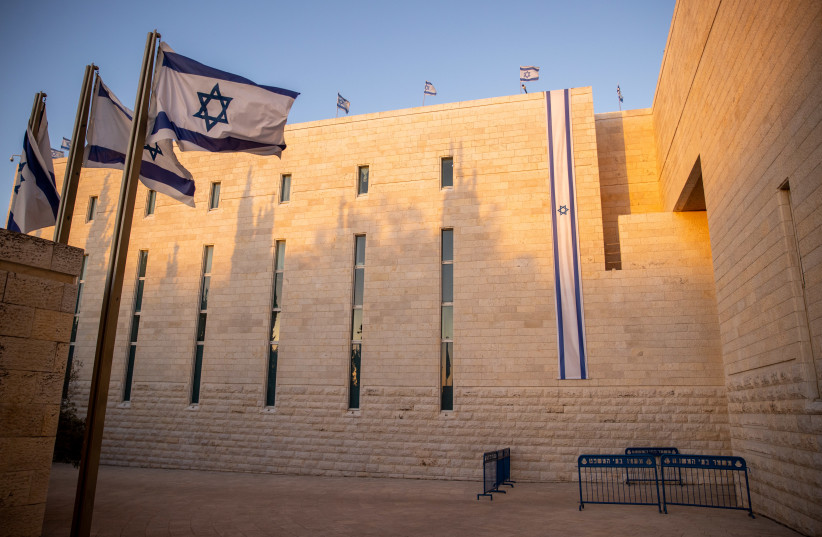In what was a record gathering at the President’s Residence of newly appointed judges and court registrars on Monday, 83 members of the legal profession pledged to judge cases without fear or favor. The ceremony was presided over by President Isaac Herzog and witnessed by Justice Minister Gideon Sa’ar, Supreme Court President Esther Hayut National Labor Court President Varda Wirth Livne and senior members of the various courts in Israel.
Paramount in the addresses of all four was the need for objectivity, independence free of external influences, respect for and preservation of the dignity of all those who come before the courts and recognizing the judiciary not as a job but as a mission.
Some of the newly appointed judges have parents and/or siblings who are lawyers. One even mentioned that her late grandfather was a lawyer. Herzog himself is a second-generation lawyer and his wife, Michal, is also a long-time lawyer.
There were also appointees whose parents and grandparents came to Israel as immigrants and were part of the low socioeconomic sector, but who swelled with pride as sons and daughters made their pledges proving that Israel is not only the Promised Land, but the Land of Promise.
The new appointments include one deputy Supreme Court president, one new Supreme Court Justice, 14 district court judges, three regional labor court judges, 38 magistrate’s court judges, five family court judges, six traffic court judges and 15 court registrars.

In the past, the Judicial Appointments Committee tried to make the appointments on a gender equality basis, sometimes with slightly more men and sometimes with slightly more women. This time, the count was very slightly in favor of the women.
Due to the large number of people in attendance, the ceremony was held in the grounds of the President’s Residence instead of inside. The seats on stage that a few days earlier had been occupied by 120 outstanding soldiers were occupied by 83 judges and court registrars who have in the past been outstanding lawyers.
The crowd of relatives, however, was much larger. Each family had been restricted to five adults, but many families brought a lot of children to see mommy or daddy receive an official appointment from the president and the justice minister. To the credit of their parents, the young children were extremely well behaved.
Looking out at the crowd, Herzog exclaimed, “There has never been anything like this before!”
Hayut later explained that judicial appointments could not be made under a caretaker government, and the resulting backlog of court cases had been such that it was essential to appoint a much larger cohort of judges than usual.
In previous ceremonies, the average number was somewhere between 20 and 30.
Herzog said that the event was historic not only due to its size, but because for the first time a Muslim judge, Khaled Kabub, was appointed as a permanent member of the Supreme Court. With the retirement of Neal Hendel, who came in for high praise, Uzi Fogelman was appointed deputy Supreme Court president, but will not succeed Hayut when she retires next year. Fogelman, 68, does not want to be president for only one year, so the next president will be Yitzhak Amit. Both he and Fogelman were appointed to the Supreme Court in 2009, but Amit, who is now 63, will have six years as president.
Herzog made the point that justice being done is not a mere cliché, but an expression of the possibility to improve a situation both for individuals and for society as a whole. Declaring that the courts can bring about social change, Herzog cited a recent visit that he made to the Jerusalem Community Court, which exists to foster rehabilitation through community service rather than sending defendants to prison. This project, conducted in partnership with the Joint Distribution Committee, is a successful social-justice initiative that directly and indirectly affects the whole community.
Herzog also spoke of an initiative in which he and Sa’ar are jointly involved, to erase the records of soldiers who during mandatory national service committed crimes other than sexual offenses and those of a violent nature. Herzog has previously stressed that there is no need for young people who have committed petty crimes, realized the error of their ways and have made amends, to go through life with a stain on their characters that can affect their career options and their social status. Through the pardons and clemency department of the Justice Ministry, Herzog is dealing with cases of civilians together with Sa’ar, and those of soldiers together with Defense Minister Benny Gantz.
